Letters from members of LGBTIQ+ community in Nepal to their younger selves
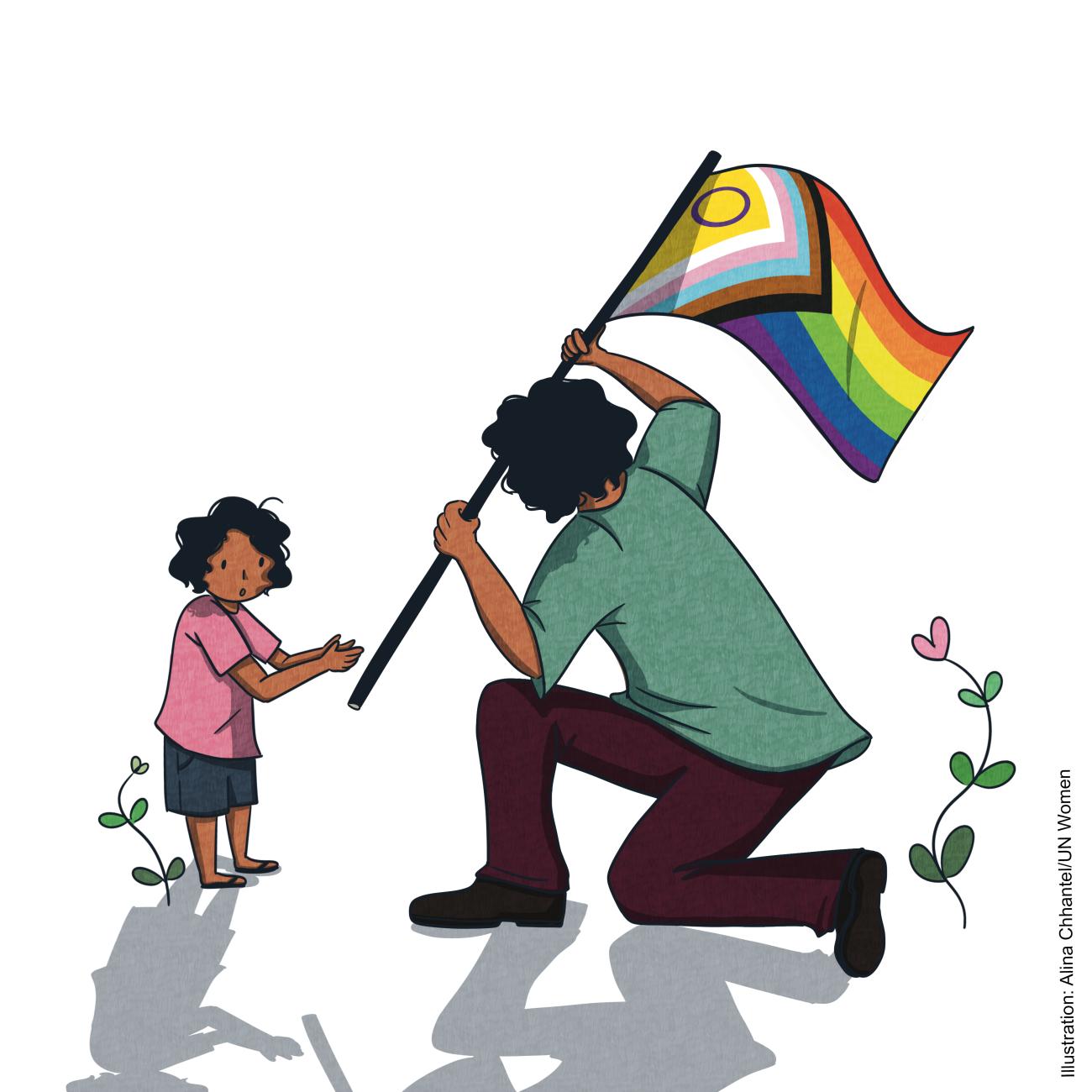
The 5 letters below from transgender, bisexual, and lesbian community members to their younger selves are collated from the study, “EVIDENCE TO ACTION".
Letters from members of LGBTIQ+ community in Nepal to their younger selves
The five letters below from transgender, bisexual, and lesbian community members in Nepal to their younger selves are collated from the study, “EVIDENCE TO ACTION Addressing Violence Against LGBTIQ+ People in Nepal 2023”. The letters share moments of reflection, exploring their social and personal experiences, including their relationship with family and friends, the types of violence they faced and its consequences. These moments of reflection aim to provide hope and comfort to the self, who at times feels alone and afraid. It follows the journey of the LGBTIQ+ person from childhood to adolescence, where they experienced feelings of isolation, to adulthood, where there is a sense of hope, acceptance and community.
LETTER TO MY YOUNGER SELF: REFLECTIONS OF A TRANS WOMAN
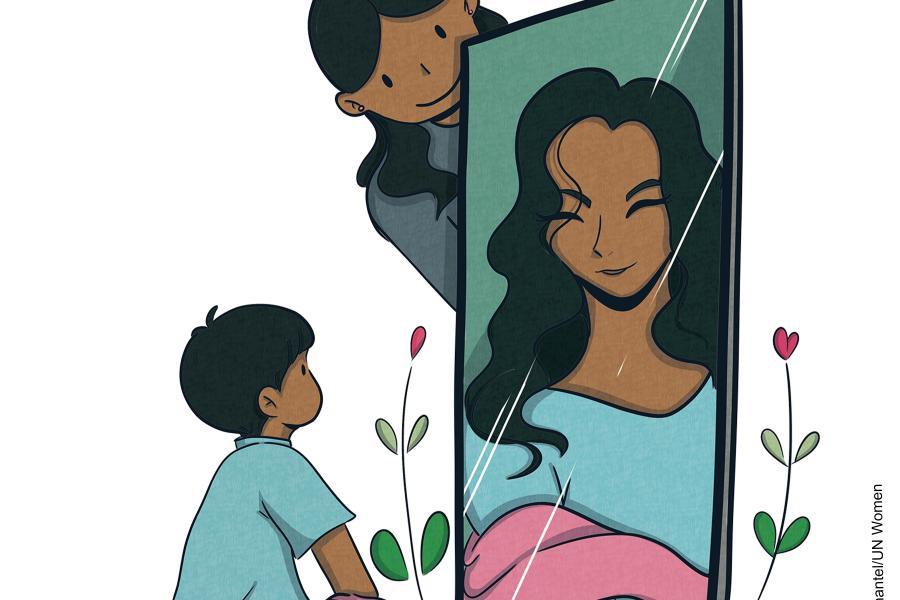
Dear K,
School is tough right now. I know you feel alone when your “friends” do not include you to play on their sports teams. I know you feel harassed when they throw your bag away or when they hit you on the head. I know you feel uncomfortable when you go to sit down after standing up to answer a question in class, only to find they quickly placed a pen on your seat. And those teachers do not pay the same attention to you as they do to your friends. I know that not all your friends treat you this way and that although some of them support you, you still feel alone.
Those “friends” use bad words like “chhakka” or “hijada” and this will not be the last time you hear them. You will have many experiences ahead of you. You will walk down the street and a police officer will think you are involved in some illegal activities and beat you very badly. Another time, two people will forcefully take you without your consent. You will ask a police officer to help you and rescue you, only to hear him refuse, saying: “Who told you to go there? Our duty is only to help normal people. We don’t have any responsibility towards chhakka or hijada."
This will not have been your first experience of violence. You’ll first meet a boy in 8th standard, and you’ll receive a proposal from him. He’ll tell you he is bisexual, and you will go home and explore what this means because you never learnt it at school. You will explore what your own identity is and come to know you are attracted to males. Fast forward to 10th standard: the same boy will invite you to his hostel and you’ll only go because you loved him, and his one word lured you there. He will force himself on you and physically abuse you in the moment and will then later blackmail you with threats to expose your sexual orientation.
But you will never need to worry about disclosing your sexual orientation to your family. They will come to accept your sexual orientation and later, your gender identity on their own. The first phase will be rejection, next tolerance until finally, they accept you. You will be open about your sexual orientation everywhere, including on social media. You will not feel as though you need to hide it or even show it. We believe being open is our quality, power and strength. It is not our weakness. K, I can now proudly represent myself as a trans woman and I am happy about it.
Uncle is also a trans woman. Maybe uncle does not want to disclose his gender identity, so most of the time, even in our childhood, he dresses like a male and occasionally he dresses like a female. Seeing our uncle when we were children made us realize that we wanted to be a female. Our family is very helpful these days; even when others ask about our identity, they give good responses and are always ready to help us with anything we need. All our brothers, sisters, family members and neighbours are also ready to help.
K, you will have many experiences ahead of you. You will become an established makeup artist while also doing other things that you love. Remember, as a child you did not want to be a burden to anyone. Well, you will be independent and support others. You will become a PrEP champion, spreading awareness among actual friends. You will feel secure, encouraged and safe because of HIV prevention programmes. You will even go on to inspire others in many ways, including by appearing on a reality TV show. Many people will message you and support you.
K, it does not matter where you have come from, what your gender identity is, or what kind of work you do. What matters is your self-confidence, and this will inspire other people as well. They will look at you and say, "If they can do it, then why can’t I too?"
Yours warmly,
K
LETTER TO MY YOUNGER SELF: REFLECTIONS OF A BISEXUAL DALIT WOMAN
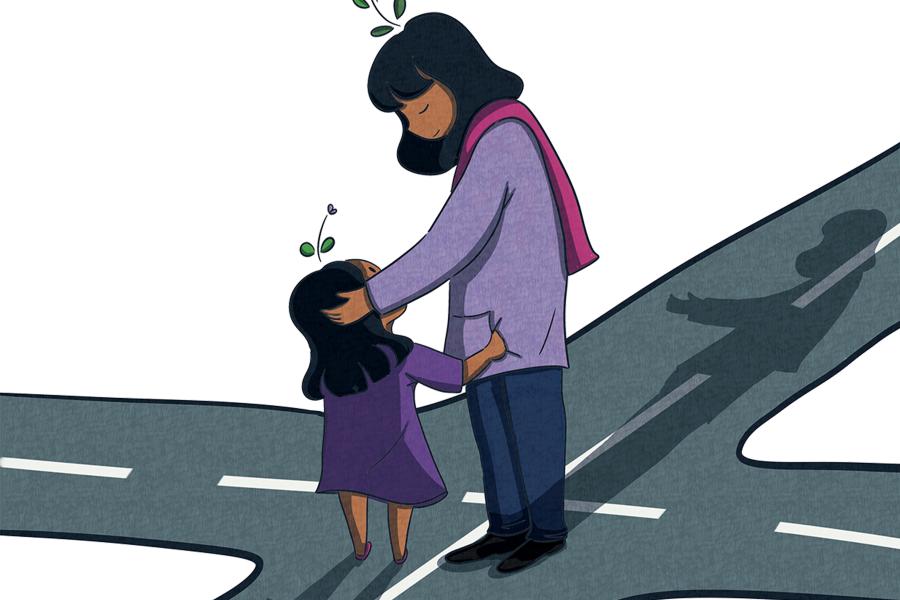
Dear M,
It will take some time for us to understand and become aware of our identities. You see, we have multiple identities. You are Dalit. You are female. You are bisexual. After completing your master’s degree, you also develop an interest in writing, in exploring your personal identity – this letter shares some of your experiences.
You belong to the Dalit community and will experience different levels of disparity from childhood to adulthood. People will start treating us differently when they realize our caste. As a female, you will face disparities in school and in the village. As a bisexual, you will also face many difficulties. All these multiple identities, and the experiences that come with them, will lead to a lot of mental health difficulties.
We are still not very open about our sexual orientation. You will feel like nobody really understands bisexual orientation at school. All your friends express attraction towards the opposite gender. But you are attracted to both girls and boys, and you didn’t tell anyone out of fear. Later, when you start to express your orientation, you will face some challenges in college. While you are studying for your bachelor’s degree, you will get a proposal for marriage. But you find yourself struggling with your feelings, so you make an excuse that we need some time before marriage. This will be a difficult decision to make. Then, during your master’s degree, you will tell your friend about your sexual orientation and she will stop speaking to you for three years. She didn’t understand then, but later she will join a social organization where she learns about gender issues – now she behaves normally with us. Until now, our family is still unaware about our sexual orientation. We have also not told them. I don’t know why.
I want to tell you a story. You had a heterosexual friend who you were close with a few years back and were working on a group project with, along with two to three other friends. You will try to share your sexual orientation with the group but will be unable to because of their negative perceptions of LGBTIQ+ people. A few months later, you will be in a small gathering. At that gathering, your heterosexual friend will propose to you in front of our other friends. It will be very awkward. But you will go speak privately with him and share everything about your sexual orientation. But he won’t believe your words and request you to change yourself. You will want to go far away from that place. This incident will mentally torture you a lot.
Based on your experience, you believe every LGBTIQ+ person faces some form of violence. You will experience psychological violence. Sometimes, when you will post photos from events and say that you work with LGBTIQ+ communities, people will send you abusive messages. But others face physical violence too and get beaten up and thrown out of their homes by their own family members. There are even some rape cases or acts of sexual violence. Despite working and trying, things are still not so easy. But we will continue.
Warmly,
M
LETTER TO MY YOUNGER SELF: REFLECTIONS OF A LESBIAN
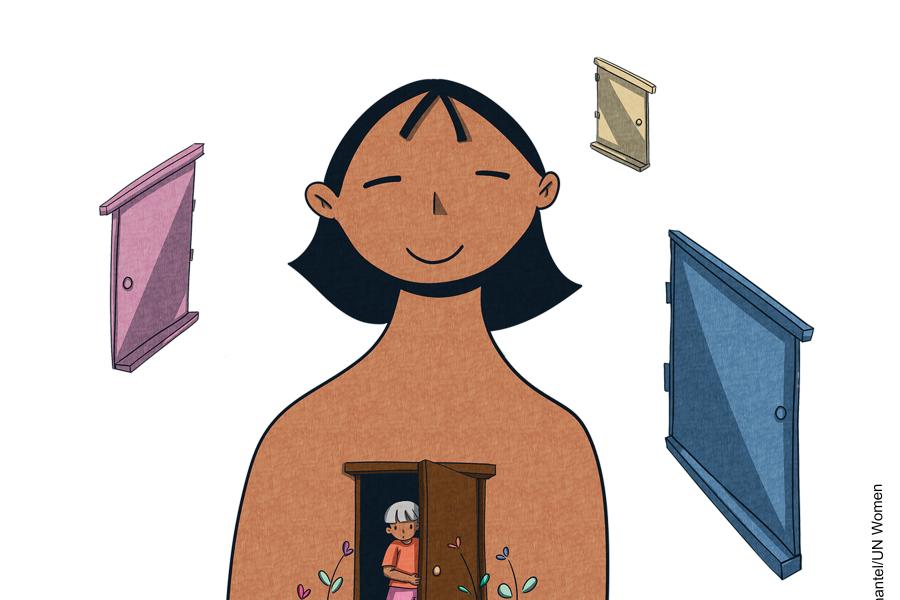
Dear D
Guess what? You are an independent, 19-year-old woman who has made her own path in life. You’ve recently finished your final law exams. I wanted to write to you and share our journey – maybe it will give you some hope when it’s hard to come by.
I know it’s taking some time to figure out who you really are, but you will. And soon you’ll be able to share that you are a lesbian with your friends. Painfully, the story with your family will be a little different. Right now, they seem more concerned about what other people in the local community will say. They listen when neighbours accuse you of having “unnatural relationships” and say that your family “needs to do more to control you.” But you will not be controlled. The life we have now proves that.
You will fall in love with your brother’s sister-in-law and you will remain together, overcoming many hardships on your journey. The first of which involved fighting for your love and against your family’s attempts to keep you both apart. Let me tell you: we win.
One evening, you and your partner arrive late at the bus station, where you call your brother for a lift home. You will introduce your partner to your brother in the hope that he will not cause any difficulty at home. You’ll trust him, but you shouldn’t have. As you reach home, he tells our family about your relationship with his sister-in-law. You are forced to share your identity and reveal whom your partner really is. You will be courageous. But your family will not accept your decision, leaving you to make the difficult decision to move away. To do this, you need your citizenship certificate; however, your family has this. Your requests to obtain your ID will be denied, and with that, your request to start a new life is also denied. You are left with no other option but to call the police. The police support you. Until your uncle bribes them. Fearing for your life, as well as your partner’s life, you spend a night in jail, just to avoid any violence from your family. You stay up together all night. Despite her objections, you sent your partner away for her own safety. This is difficult to hear, but better days will come.
When you get home, you will hear your family discussing your marriage to someone else. You are angered. You are beaten down by your family for expressing yourself. Your brother confiscates your phone and sends verbally abusive messages to your partner. When you finally retrieve your phone, you message her. Your partner reassures you that she will never leave. You talk to her every night thereafter and you learn more about her. She was forced to hide her identity. She is forced into a relationship with a man to help conceal her truth. But this does not change how you will feel about her.
In time, you find out that your family is planning to kill you. They are planning to blame your partner. What can you do? You are forced to run away and stay with a trans friend, but they are unable to help.
When one door shuts, another opens. Your friend connects you to a LGBTIQ+ organization in Kathmandu that provides you shelter. We are safe.
Later, you will reunite with your partner after she leaves her abusive boyfriend. You will move in together and start a new life – together. You work hard and fund your own education. Your family call you and you pick up. But kind words turn to abusive taunts. They will claim to be there for you, but after past experiences we do not trust our family. But now, through all the hardships and navigating life, we are free and safe.
Love,
D
LETTER TO MY YOUNGER SELF: REFLECTIONS OF A LESBIAN
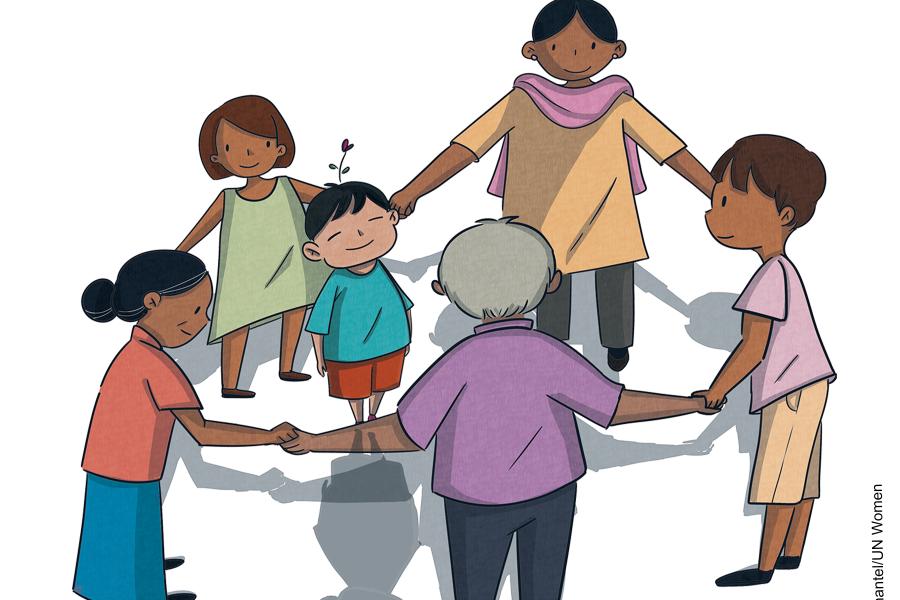
Dear S,
I know you are having a hard time understanding yourself. So let me tell you how I see you. You are open. You are unafraid. You are accepted – by your friends and family. Perhaps not now, but they will accept you in time.
You may not know it yet, but you are not alone, and it is okay to feel a little lost when discovering yourself. As you get older, you will find your people, your community. They will understand your experiences and your journey. These people will form organizations to guide, support and advocate for LGBTIQ+ communities. They will embrace you and encourage you to open up to your family. As you first begin to understand your identity, you will turn to your younger sister and share this with her. You will learn that your younger sister will always be there for you, and you can tell her anything. Later, you will discover that your older brother is gay. You will learn that he was verbally abused in school and faced discrimination. For example, he will be unsure about which bathroom to use and when he reports the abuse he hears, his teacher will tell him to just wear female clothing and avoid associating with other males. You will learn that your siblings will always support you. As for your parents, although they are hesitant towards your LGBTIQ+ friends, they will gradually understand and become accepting. The same as they did with your brother.
Things might be tough right now; your two elder sisters are married and have now started working away from home. Your father is also working away from home, and you have been left with the responsibility of heading the household and supporting your sister. You are becoming self-reliant and in time, this quality will mean that others will be able to rely on you too.
For example, after overcoming your anxieties about sharing your sexual orientation, you will begin to wonder about others who are in the same position as you or cannot be themselves. Being self-reliant taught you to not only look after yourself but also others. You will realize that had you been alone, this journey would have been far more difficult. This motivates you to begin working for LGBTIQ+ organizations to campaign for justice on behalf of LGBTIQ+ communities. Through your work, others in the community will feel confident and empowered to be themselves without fear. Nevertheless, there is much work to do because although things have improved since you were young, it is not over until everyone has the right to live how they choose.
As for your friends, some will lean on you and look to you for support as they share their experiences of violence and discrimination. Your friends will share that people verbally abused them, calling them names like “chhakka” and “hijada,” beat them and then took them to the police station. You will gather up your friends and rush to the police station together to release them. You will apply pressure to the police and fight for justice. The perpetrators will be punished, and you will be successful in your efforts.
When you grow older, you will stand in your own decisions. You will tell your family that you do not wish to marry a man and become bound to household chores. And although people will reach out to your parents with hopes of marriage, your parents will stand by you and support you. They will tell them that the decision to marry is yours and yours alone.
Remember, you are open. You are unafraid. You are accepted.
Yours,
S
LETTER TO MY YOUNGER SELF: REFLECTIONS OF A TRANS MAN
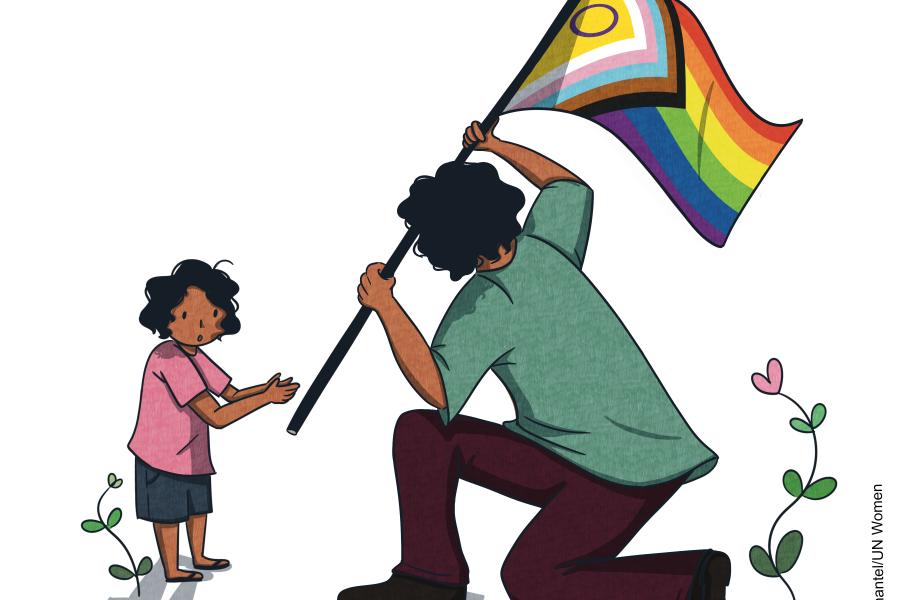
Dear A,
I know you’re feeling lonely. You feel like there is no one in the world like you, nor anyone you can relate to. I know you feel that this loneliness and uncertainty will be everlasting because no one, including yourself, understands you or your experience.
You are unsure about both your sexual orientation and your gender identity. You feel different because you are not like other girls who like boys, and you feel you don’t relate to them. You know that you like girls, and this makes you feel strange and isolated. I want you to know – what you’re feeling is not strange. You are not alone in feeling this way. These feelings seem so eternal to you now, but as you grow older, this feeling of internal struggle will move on to one of clarity. You will also come across a sense of community and belonging. You will have many people that you call a friend.
While you are discovering yourself, things with your family will become difficult. You will feel like you don’t belong within your family. You will think your parents care more about your siblings than you. Your father won’t speak kindly to you and sometimes your family will say things no one should have to hear. Your family will also force you to behave like a daughter. Believe me: I know what it is like to wake up in the only home you have ever known and not feel understood or accepted. Because of this, life might feel too difficult to go on, but you will always push through.
You are the strongest person I know. You would much rather leave home than be forced to live in a way you don’t want. Soon, you will leave home and move to the big city, Kathmandu. Once in the city, people will try to involve you in sex work, but you will resist the pressure. You find it difficult in Kathmandu to begin with, but you make ends meet by doing odd jobs. You won’t ever tell your parents that you are struggling.
Things will be better. Strength, confidence and resilience will become an important part of your character.
You will be in a different phase of your life, one in which you realize there is a word for people who feel what you feel: trans man. You will be proud of this newfound clarity. As I promised, you will meet many like you, and for once in your life, you will feel understood.
Life will get better. Eventually your family will accept you, even though they used to try to force you to change. During your journey, your siblings will remain a source of comfort. You used to paint houses with your brother, but later you will become a human rights activist working for LGBTIQ+ communities across Nepal. You will study psychosocial counselling to help people with mental health difficulties. Who would have thought that this would be your journey?
You will find someone you love. You will move into a house with them. You will pay your own rent. You will be independent in the truest sense. There is a lot to look forward to. I am proud of you.
Yours,
A

